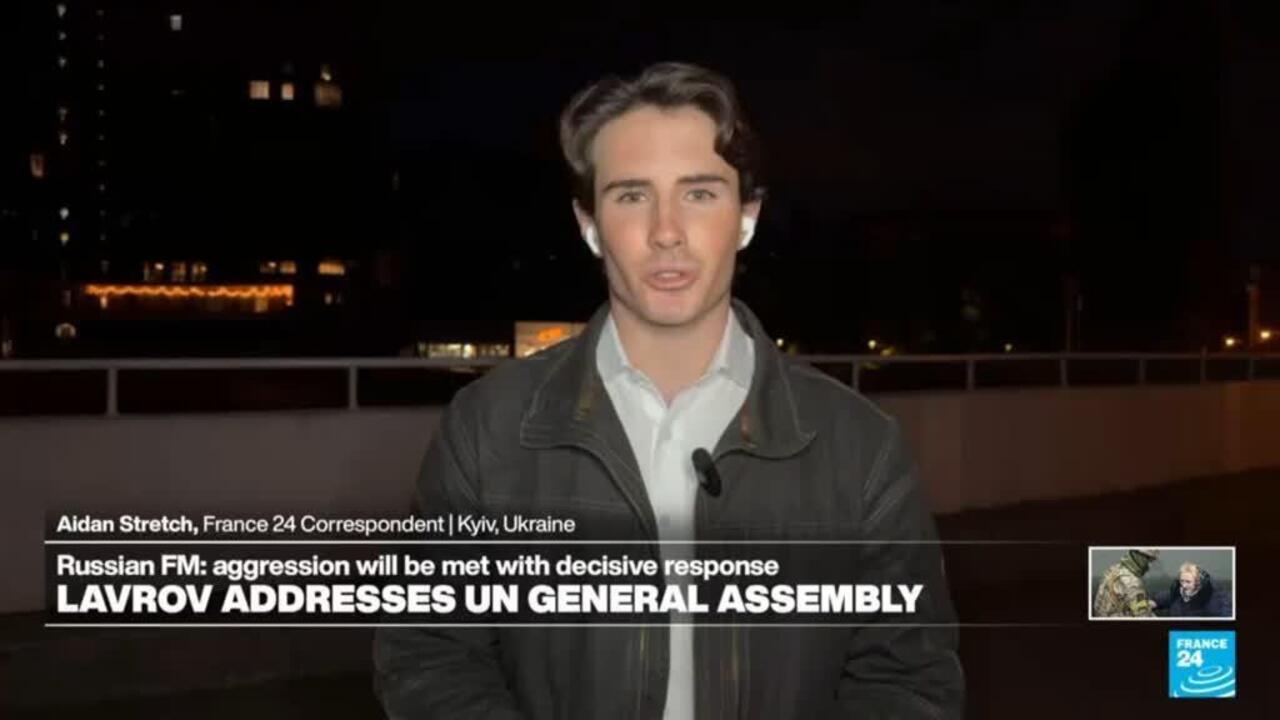
AFRICA
Written by Stylo News: AI-Powered, Multi-Source Global News

Images © their owners, publicly available, for informational purposes.
Map of Events
The event took place at the United Nations General Assembly in New York, USA, with geopolitical implications involving Russia, Europe, and Ukraine.
Locations
Event Updates
Lavrov's Statement at UN: Decisive Response to Any Aggression Against Russia
Executive Summary
On September 27, 2025, Russian Foreign Minister Sergei Lavrov addressed the United Nations General Assembly in New York, delivering a strong message that Russia does not intend to attack Europe but will respond decisively to any acts of aggression against it. Lavrov's remarks come amid heightened tensions in Eastern Europe, particularly in the context of the ongoing conflict involving Ukraine and Russia. Concurrently, Ukrainian President Volodymyr Zelensky announced from Kyiv that Ukraine received a US-made Patriot air defense system from Israel about a month ago, signaling continued international military support for Ukraine. Lavrov's statement underscores Russia's position on defending its sovereignty and territorial integrity while denying offensive intentions towards European countries. This address is part of ongoing diplomatic exchanges at the UN, reflecting the complex geopolitical dynamics in the region.
Situation
The situation reflects escalating tensions between Russia and Western-aligned countries, especially Ukraine and its supporters. Lavrov's statement at the UN General Assembly serves as a warning against any military actions targeting Russia, emphasizing a readiness for a decisive response. This comes amid reports of increased drone sightings in Germany and Denmark and NATO's efforts to enhance drone defense capabilities. Ukraine's acquisition of advanced air defense systems like the Patriot missile system from Israel, facilitated by US support, indicates bolstered defenses against aerial threats. The timeline includes Russia's ongoing military engagements in Ukraine since 2022, international sanctions against Russia, and diplomatic efforts to manage the conflict. National responses vary, with Russia asserting defensive postures and Western countries supporting Ukraine's sovereignty. Lavrov's remarks aim to deter further escalation while projecting Russia's resolve. Key figures include Sergei Lavrov and Volodymyr Zelensky, whose statements reflect opposing perspectives on the conflict.
International Impact
Lavrov's declaration at the UN has significant international implications, reinforcing Russia's stance on its security concerns and affecting diplomatic relations with European nations and NATO. It signals potential risks of escalation if perceived aggression occurs, influencing global security calculations. Western leaders have reiterated support for Ukraine's defense capabilities, while cautioning against actions that might provoke broader conflict. The statement also impacts negotiations and peace efforts, highlighting the fragile state of international diplomacy. Quotes include Lavrov's warning of a 'decisive response' to aggression and Zelensky's announcement of enhanced air defense support, illustrating the polarized international environment.
Decision Maker Perspectives
Russia: Russia, through Lavrov, emphasizes its defensive posture and readiness to respond decisively to any aggression, denying intentions to attack Europe.
Ukraine: Ukraine, led by President Zelensky, continues to seek and receive international military support to defend against Russian aggression.
United States: The US supports Ukraine's defense capabilities, including facilitating the transfer of advanced systems like the Patriot missile defense from allies such as Israel.
Source Perspectives
FRANCE 24: FRANCE 24 provides a neutral report focusing on the statements made by Lavrov and Zelensky, highlighting the ongoing conflict dynamics and international responses.